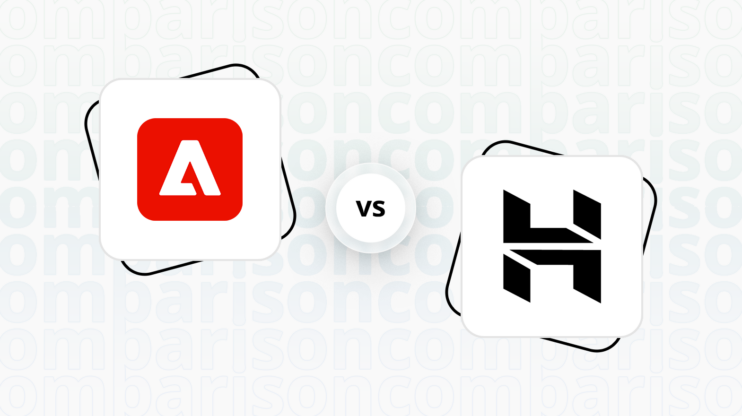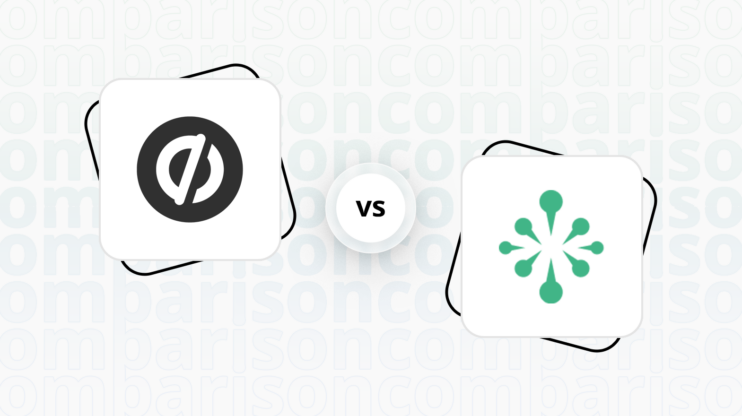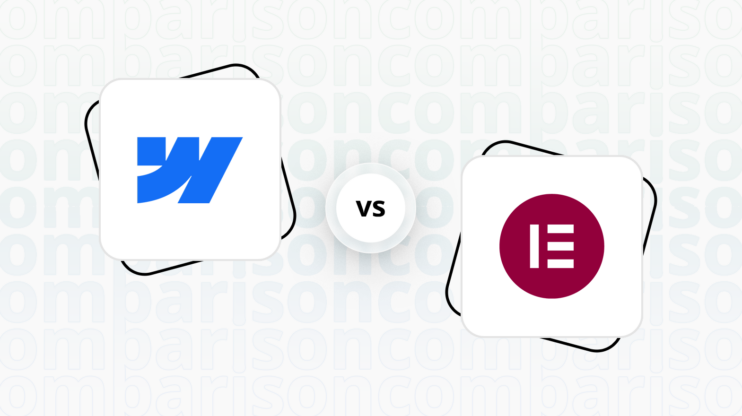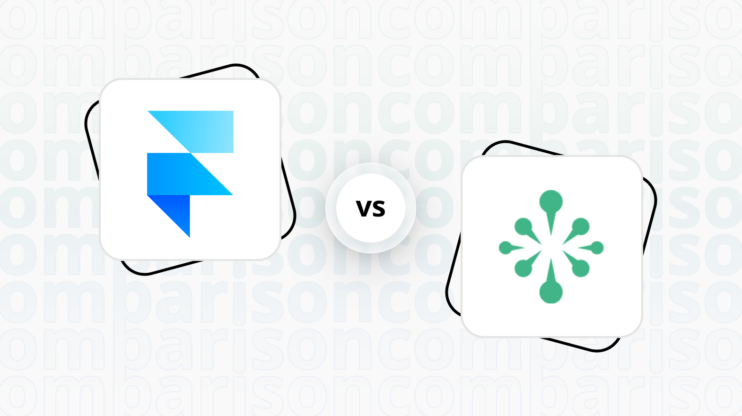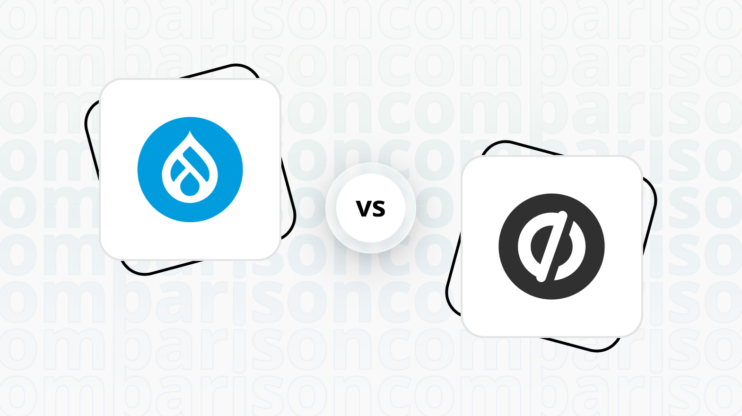Drupal vs Hostinger Website Builder: Final verdict
Drupal and Hostinger Website Builder both offer unique advantages, but they cater to different user needs and preferences.
-
Drupal (Overall Grade: 6.4/10)
is a powerful open-source CMS known for its flexibility and extensibility. It is ideal for developers and users who need to create complex websites with custom functionalities. Drupal excels in providing a wide range of modules and themes, making it suitable for various types of websites, from personal blogs to large corporate sites. However, it has a steep learning curve and requires more technical knowledge, which might be challenging for beginners. -
Hostinger Website Builder (Overall Grade: 7.1/10)
is designed to make website creation easy and accessible for everyone. It offers a user-friendly drag-and-drop interface, making it an excellent choice for beginners and small businesses. Hostinger Website Builder provides a good selection of customizable templates and essential ecommerce features, although it may not match the depth and scalability of more advanced platforms. Its affordability and ease of use make it a practical option for users looking for a straightforward website building experience.

|

|
|
|---|---|---|
|
Design functionalities & templates |
7.8 |
8.5 |
|
Ease of use |
5.4 |
8.3 |
|
Ecommerce |
7.5 |
6.1 |
|
Website Editors |
7.5 |
7.4 |
|
Product testing options |
7.1 |
6.7 |
|
Price |
5.7 |
9.0 |
|
Hosting quality |
0 |
7.2 |
|
Website speed optimization |
6.4 |
8.2 |
|
Plugins and integrations |
8.6 |
4.7 |
|
Marketing features |
8.0 |
5.8 |
|
Customer support |
6.7 |
7.2 |
|
Security |
8.3 |
8.2 |
|
AI capabilities |
7.5 |
6.1 |
|
User Management |
9.1 |
6.3 |
Which one is the best for ecommerce: Drupal or Hostinger Website Builder?
 7.5
7.5
 6.1
6.1
Verdict
: Hostinger Website Builder is suitable for small businesses and individual sellers, while Drupal offers a more flexible and powerful solution for complex ecommerce needs.
-
Drupal
: With its Drupal Commerce module, Drupal provides a robust ecommerce solution that integrates seamlessly into its CMS. It offers extensive customization options, making it ideal for businesses with complex pricing models and product variations. However, it has a steep learning curve and may require extensive customization for specific needs. When comparing Drupal vs Hostinger Website Builder, Drupal stands out for its flexibility and extensibility. -
Hostinger Website Builder
: This platform offers basic ecommerce capabilities, making it suitable for small businesses and individual sellers. It provides an easy-to-use drag-and-drop interface, but it lacks the advanced features and scalability of more dedicated ecommerce platforms. In the Drupal vs Hostinger Website Builder comparison, Hostinger is more user-friendly but less powerful for complex ecommerce requirements.
Which one is the best for informational and business websites?
 7.5
7.5
 7.9
7.9
Verdict
: Hostinger Website Builder is slightly better suited for informational and business websites due to its user-friendly interface and comprehensive hosting services, while Drupal offers extensive customization and flexibility, making it ideal for more complex projects.
-
Drupal
: Drupal is a powerful open-source CMS known for its flexibility and extensibility. It is suitable for a wide range of websites, from personal blogs to corporate and government sites. However, its steep learning curve and reliance on user-driven optimization can be challenging for beginners. Drupal’s extensive range of modules and themes allows for significant customization, making it a versatile choice for developers who need advanced functionalities. -
Hostinger Website Builder
: Hostinger Website Builder is designed to make website creation easy and accessible for everyone. Its drag-and-drop interface and real-time editing make it user-friendly, especially for beginners. Hostinger offers a variety of customizable templates and comprehensive hosting services with a 99.9% uptime guarantee. This platform is ideal for users who prioritize ease of use and integrated hosting solutions when building informational and business websites.
Drupal vs Hostinger Website Builder: Detailed comparison
Design functionalities & templates
Design FunctionalitiesRepresents how well each platform allows for creative design and customization of websites.Score Components:
- Template Variety (30%): Range and quality of design templates.
- Customization (30%): Flexibility and options for design alterations.
- User Interface (20%): Ease and intuitiveness of the design process.
- Responsiveness (10%): Adaptability to different devices and screen sizes.
- Innovation (10%): Unique design features and tools.
 7.8
7.8
 8.5
8.5
🏆
Winner: Hostinger Website Builder.
If you’re looking for a platform that offers more creative control and a wide array of design features, Hostinger Website Builder is the preferred choice.
Drupal, as a highly flexible and powerful content management system, offers a vast array of templates and designs to cater to virtually any website need. With thousands of themes available, users can choose from minimalist designs, industry-specific layouts, and highly customizable multipurpose themes.
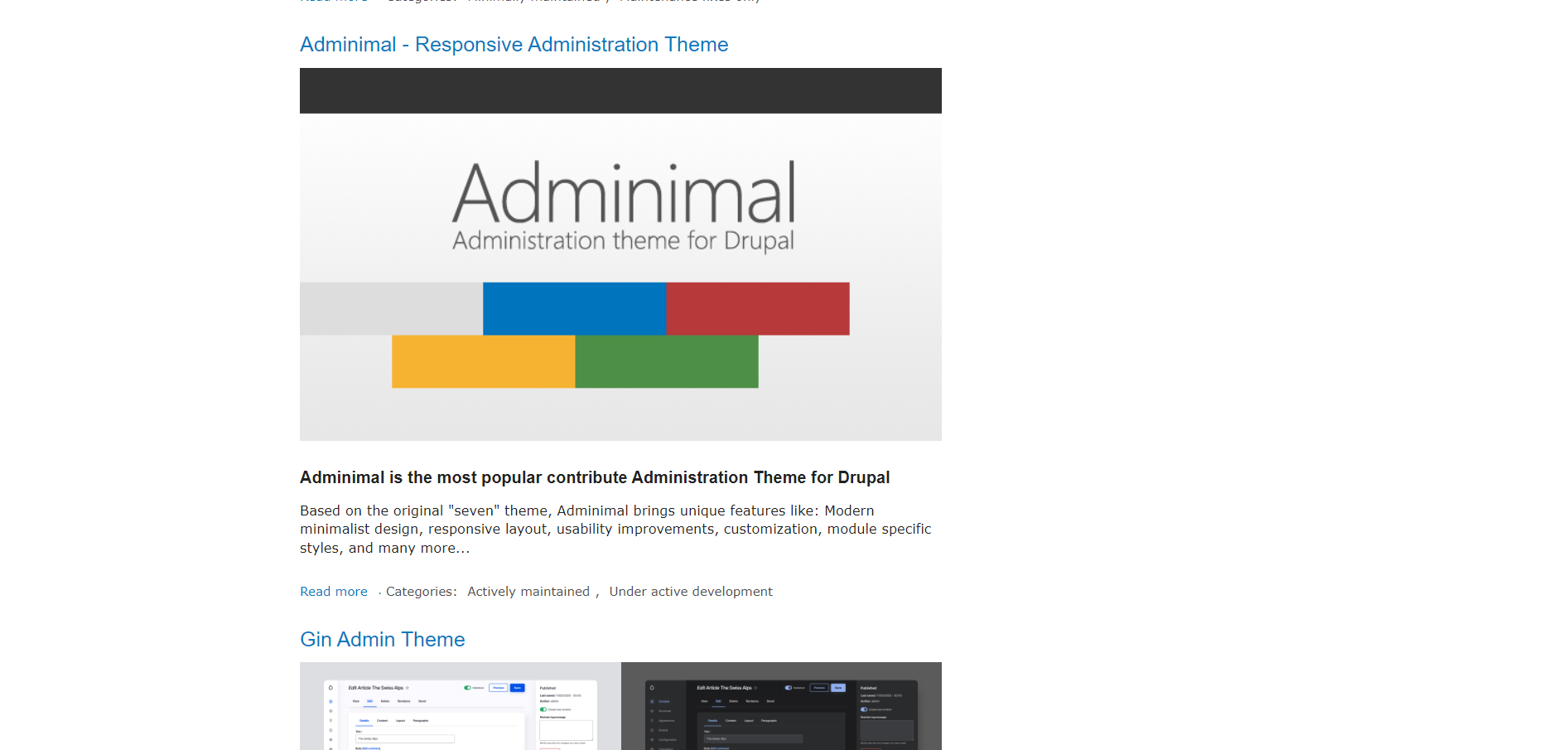
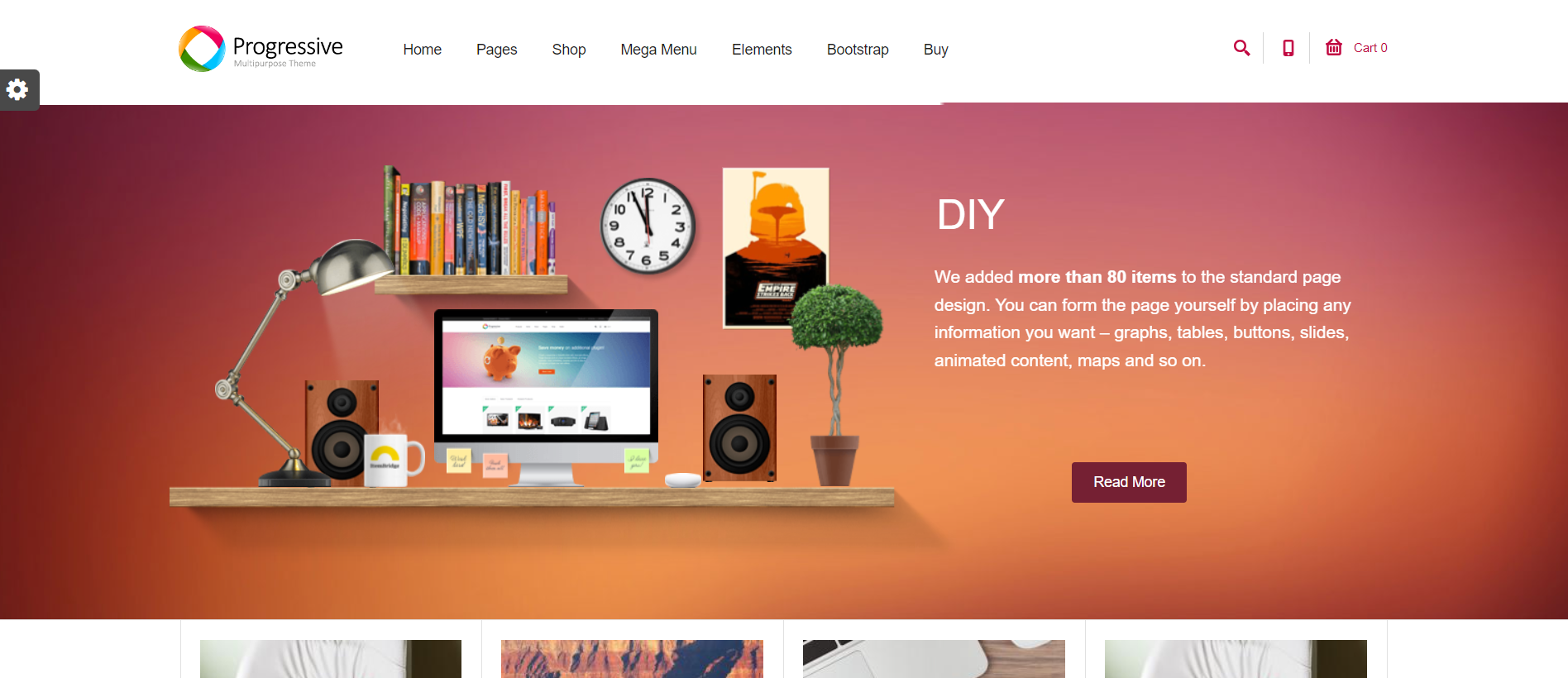
Compared to Drupal, Hostinger Website Builder offers an extensive collection of over 140 templates across various categories. These templates are fully customizable, providing design flexibility with the ability to adjust colors, fonts, layouts, and incorporate unique brand elements.
Hostinger Website Builder Themes
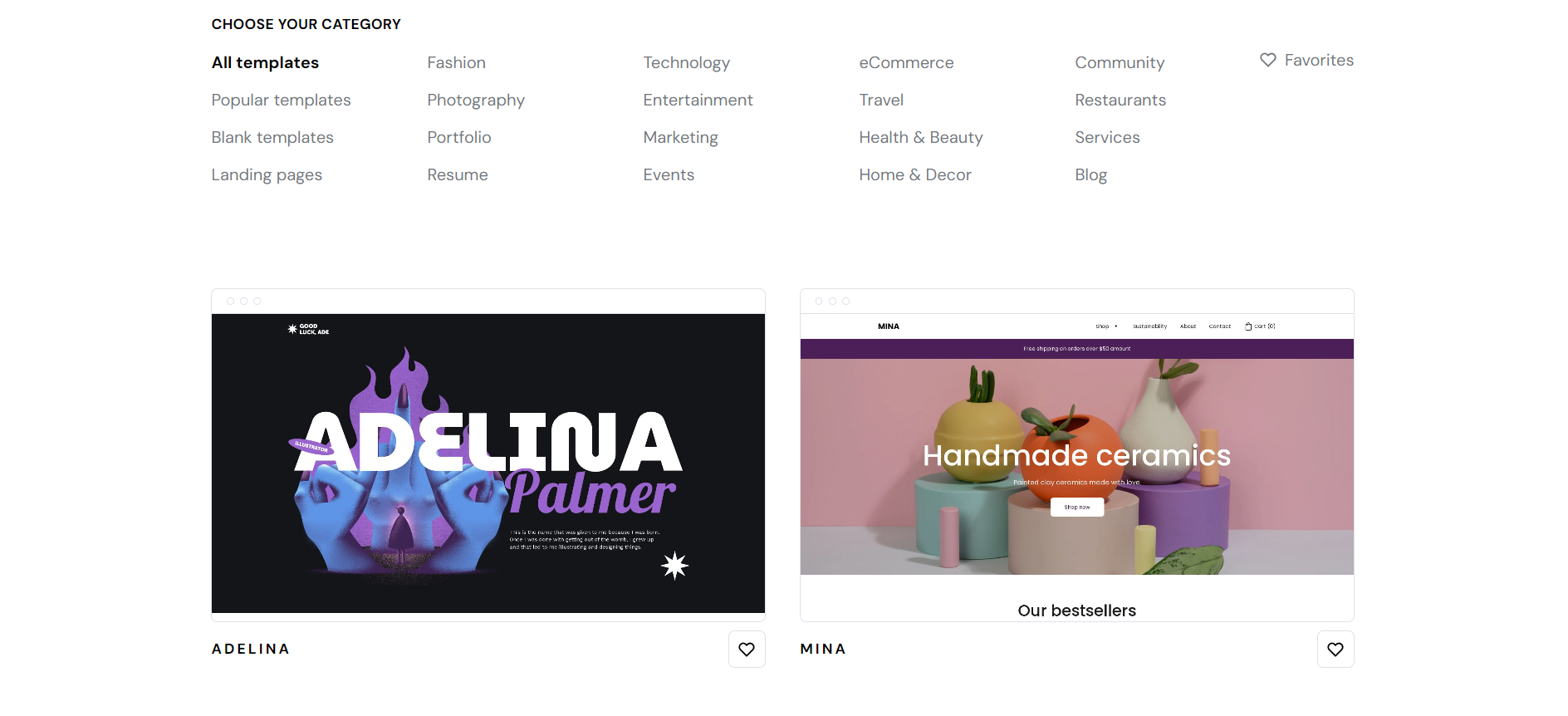

Get a head start on website creation with AI
Create a custom website tailored to your business needs 10X faster with 10Web AI Website Builder!
Ease of use
Ease of useReflects the platform’s overall user-friendliness.Score
Components:
- Learning curve (40%): Quickness and ease of getting started.
- Interface design (30%): Simplicity and intuitiveness of layout.
- User guidance (20%): Quality of tutorials and support.
- Flexibility (10%): Adaptability to various user skills.
 5.4
5.4
 8.3
8.3
🏆 Winner: Hostinger Website Builder
. With a score of 8.3, Hostinger Website Builder is designed to be user-friendly, featuring a drag-and-drop interface and real-time editing. Drupal, scoring 5.4, is a powerful platform but has a steep learning curve, especially for beginners. If ease of use is a priority, Hostinger Website Builder is the clear winner in this category.
Learning Resources
🏆 Winner: Drupal
. Both platforms offer solid learning resources, but Drupal goes a step further with its extensive official documentation, vibrant community forum, and a variety of online courses and tutorials. This makes it easier for users to learn and adapt, despite its steep learning curve.
For ecommerce
EcommerceMeasures the platform’s effectiveness in supporting online business activities.Score Components:
- Ecommerce themes and templates (20%): Variety and design of templates.
- Product management (25%): Ease of managing and organizing products.
- Payment options (25%): Variety and convenience of payment methods.
- Ecommerce features (20%): Features for managing an ecommerce store.
- Integration (10%): Compatibility with external e-commerce tools and services.
 7.5
7.5
 6.1
6.1
Drupal, with its Drupal Commerce module, offers a flexible ecommerce solution that can be integrated seamlessly into its content management system. It provides a wide array of features including product management, shopping cart, payment gateway integration, and customizable workflows that cater to complex pricing models and product variations. However, some of its downsides include a steep learning curve for users not familiar with Drupal, the potential need for extensive customization to meet specific ecommerce needs, and performance can be a concern for very large-scale stores without proper optimization.

|

|
|
|---|---|---|
|
Ecommerce themes and templates |
7.8 |
6.5 |
|
Product page customization |
8.3 |
5.8 |
|
Payment processing and commissions |
7.5 |
7.0 |
|
POS capabilities |
5.5 |
4.5 |
|
Payment gateways |
7.7 |
7.5 |
|
Product numbers |
7.0 |
6.0 |
|
Additional ecommerce features |
8.0 |
6.2 |
Drupal ecommerce features:
- Shopping Cart and Checkout Process
- Payment Gateway Integration
- Order Management and Invoicing
- Tax Calculation and VAT Support
- Shipping and Fulfillment
- Promotions and Discounts
- Reporting and Analytics
- Security and Compliance
Hostinger Website Builder ecommerce features:
- Product Catalog Management
- Inventory management
- Taxes and shipping
- Payment gateways
- Order management
- Discount coupons and promotions
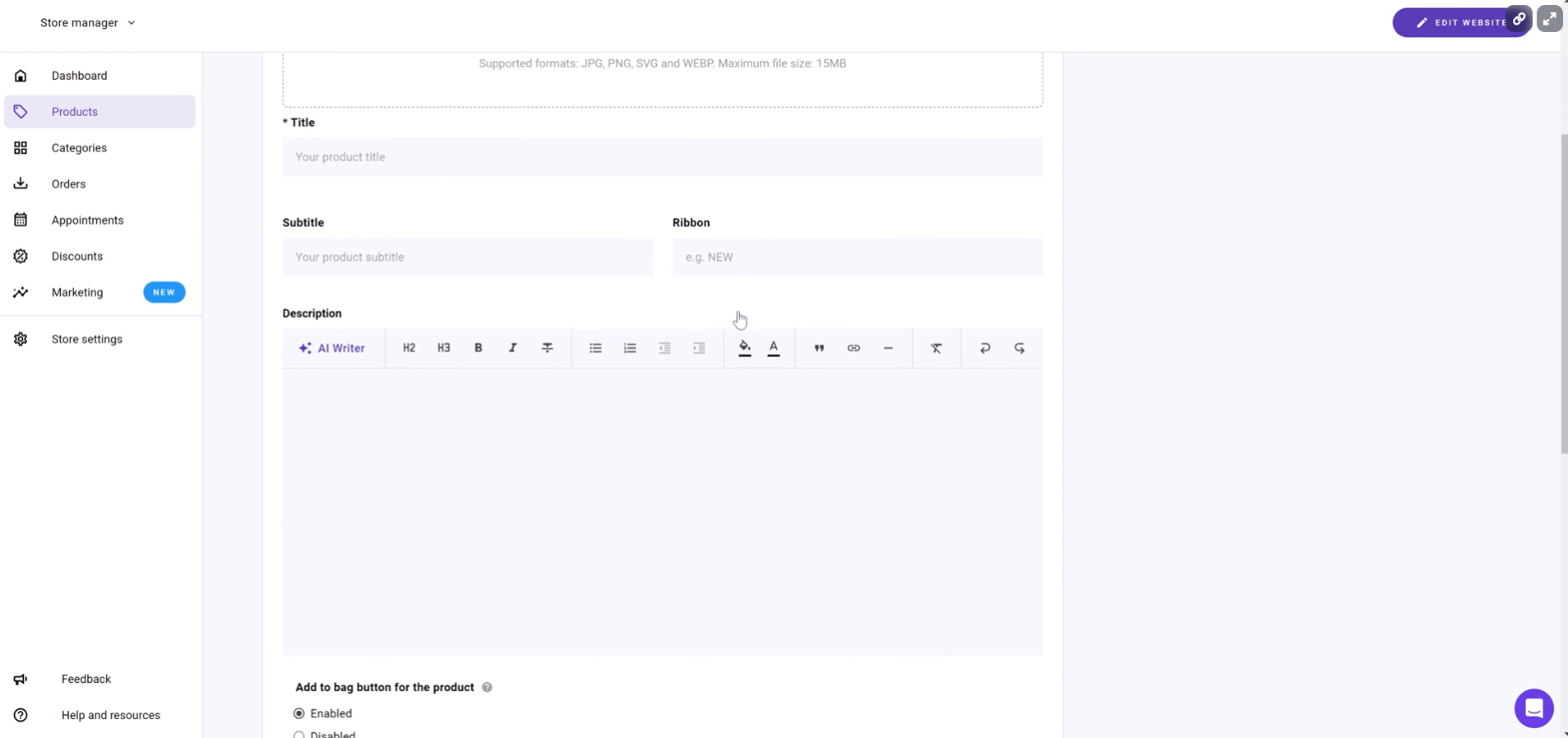
Ecommerce themes & templates
Drupal offers a wide array of eCommerce themes designed to cater to different types of online stores, from clean and simple designs to more sophisticated and feature-rich options. These themes are built with responsiveness in mind, ensuring that stores function seamlessly across various devices. Themes like Fiora, DrupalMag, and Storefront highlight the diversity available, offering customization options to match the unique needs of each business. The availability and functionality of these themes underscore Drupal’s flexibility and power as an eCommerce platform.
In contrast, Hostinger Website Builder provides over 50 ecommerce templates out of its library of 140+, covering various styles and industries. These mobile-responsive templates offer pre-built functionalities such as product pages, shopping carts, and wishlists, but compared to dedicated platforms, the selection may feel smaller, and customization options might be more limited. Additionally, some advanced ecommerce features may not be available in all templates.
Product page customization
Drupal offers extensive customization possibilities for product pages through its modular architecture, allowing for detailed content types, flexible displays with Views, and theme customizations. The Drupal Commerce module enriches e-commerce functionalities, enabling tailored product management, checkout flows, and payment systems. With the ability to develop custom modules, Drupal provides range of possibilities to meet specific e-commerce needs.
In contrast, in Hostinger Website Builder, product page customization includes editing basic elements, adjusting layout and design, and optimizing SEO settings. However, compared to dedicated ecommerce platforms, it falls short in terms of flexibility due to limited code access, restrictions on creating entirely new custom sections, and theme-specific limitations. Additionally, Hostinger offers fewer add-ons and integrations for advanced product page features, such as reviews and wishlists.
Payment processing
Drupal supports a wide range of payment gateways through third-party modules, including popular ones like PayPal, Stripe, and Authorize.Net. These modules enable seamless integration for e-commerce functionalities on Drupal sites. While Drupal itself does not charge any commissions or transaction fees, the individual payment gateways integrated with it do have their own fee structures, which typically include per-transaction charges and may also have monthly fees. The specific fees depend on the chosen payment gateway and the terms of service agreed upon by the website owner.
Hostinger Website Builder provides basic ecommerce features, supporting popular payment gateways like PayPal, Stripe, and Square with no additional platform commissions on sales. However, it lacks built-in payment processing and integrated point-of-sale capabilities, necessitating reliance on third-party gateways and separate systems for in-person transactions. The platform supports various payment gateways, and users should refer to the Hostinger website for a comprehensive list based on their location and plan.
Website Editors
Website EditorsEvaluates the platforms’ website building and editing capabilities.Score Components:
- Customization tools (40%): Range and power of editing features.
- Editor usability (30%): User experience within the editor.
- Design flexibility (20%): Freedom in layout and design changes.
- Update and maintenance ease (10%): Simplicity of updating and maintaining the site.
 7.5
7.5
 7.4
7.4
🏆
Winner: Drupal
. Drupal, with a score of 7.5, offers a wide range of features tailored for content creation and management. It supports rich text editing, enabling users to format text, insert links, images, and media, as well as create tables and lists with ease. The editor is highly customizable, allowing administrators to configure toolbars and options according to the needs of their site. Furthermore, it integrates seamlessly with Drupal’s content management system, supporting features like automatic content saving, version control, and access control, making it a powerful tool for building and managing diverse web content.
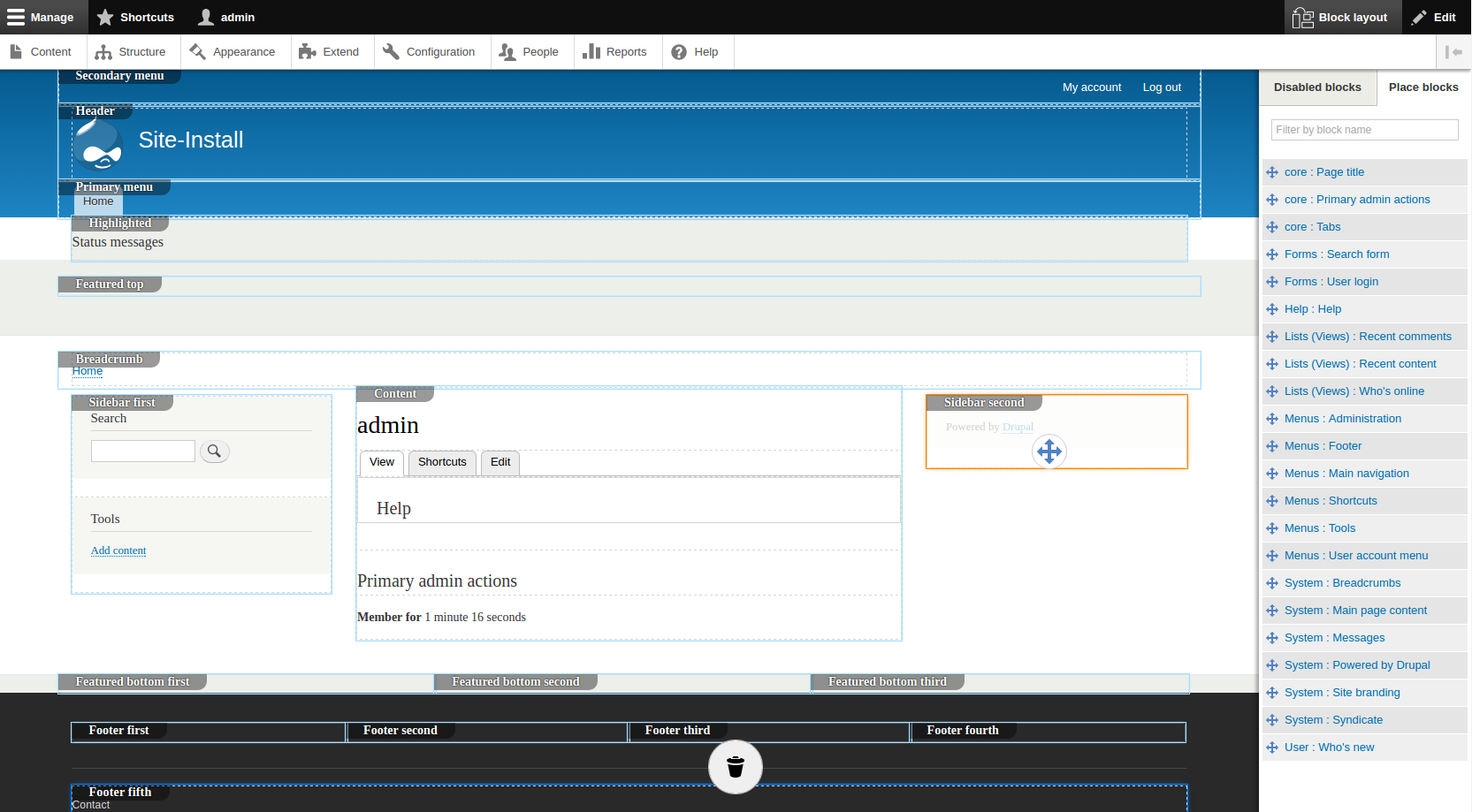
Hostinger Website Builder’s editor, scoring 7.4, is a beginner-friendly platform with a drag-and-drop interface, pre-designed templates, and visual aids for easy website creation. It offers various sections, content editing tools, SEO optimization, and ecommerce capabilities on premium plans, but has limitations in design flexibility compared to code-based platforms and may have fewer advanced features for high-volume stores. Customization options also vary based on the chosen plan.
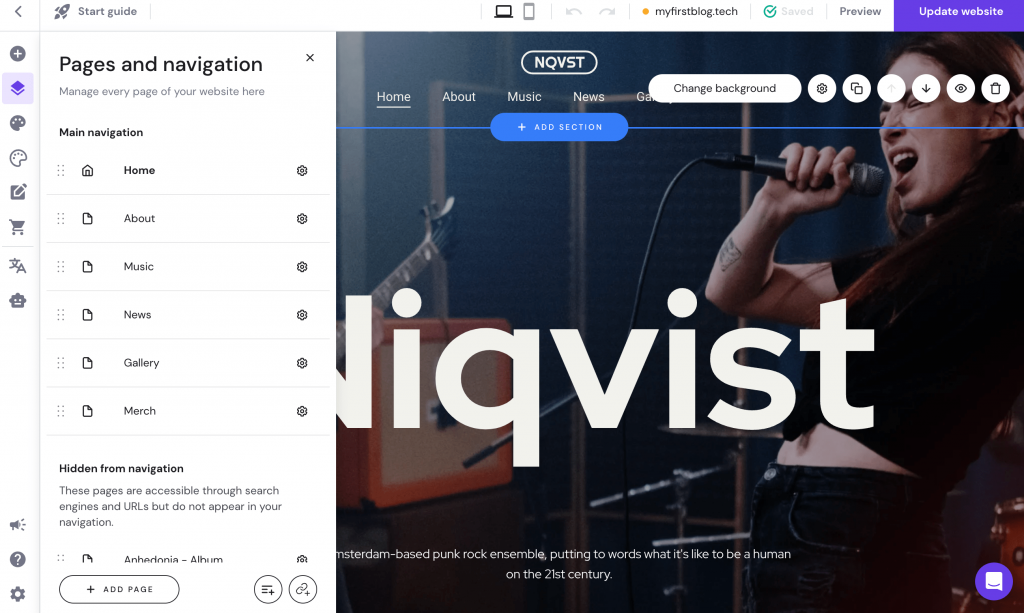
Mobile editor/app
 0
0
 5.5
5.5
🏆
Winner: Hostinger Website Builder
. Both Drupal and Hostinger Website Builder lack a dedicated mobile editing app. However, Hostinger Website Builder offers a mobile-friendly interface that can be accessed directly through a phone’s web browser, allowing for on-the-go website editing. On the other hand, Drupal does not provide a mobile editing solution, which can limit the flexibility and accessibility of website management for its users. Therefore, Hostinger Website Builder takes the lead in this category due to its mobile-friendly interface.
Product testing options
Product Testing OptionsAssesses the options for trying out platform features before commitment.Score Components:
- Trial quality (40%): Extent and usefulness of the trial or free version.
- Feature accessibility (30%): How many features are available to test.
- Trial duration (20%): Length of the trial period.
- Ease of transition (10%): Smoothness of moving from trial to paid plans.
 7.1
7.1
 6.7
6.7
Overall Result
:
Drupal wins
. Drupal scores 7.1 in product testing options, slightly higher than Hostinger Website Builder’s 6.7. Drupal, being an open-source CMS, offers a free version but no trial version or premium features testing. On the other hand, Hostinger Website Builder doesn’t offer a free or trial version, but allows testing of premium features during the 30-day refundable period and offers a 30-day money-back guarantee.

|

|
|
|---|---|---|
|
Free Plan |
Yes (open-source software) |
No |
|
Trial Duration |
No | No (30-day money-back guarantee) |
|
Testing Premium Features |
No |
Yes, during the 30-day refundable period |
Price
PriceLooks at the cost-effectiveness and value for money of each platform.Score Components:
- Plan value (40%): What each pricing tier offers.
- Transparency and clarity (30%): Clearness of pricing structures.
- Flexibility of plans (20%): Range of options to suit different budgets.
- Hidden costs (10%): Additional expenses not included in the plan.
 5.7
5.7
 9.0
9.0
While Drupal is free, it requires separate purchases for domain, hosting, and website builder subscriptions. On the other hand, Hostinger Website Builder offers affordable plans with a significant discount for annual subscriptions.

|

|
|
|---|---|---|
|
$10-$13 |
No offering at this amount. |
Premium website ($11.99/month): Build 1 website with 10 GB storage, 100 GB bandwidth, custom domain & email, social media integration & SEO tools. Value for price: 7.5 |
|
$13+ |
No offering at this amount. |
Business website builder ($13.99/month): Build 1 website with custom domain & emails, AI website builder, AI image generator, AI writer, ecommerce features, marketing integrations and 0% transaction fees. Value for price: 8.5 |
location. As a result in rare cases the prices displayed here can differ from the ones you see on their
websites.
Hosting quality
Hosting
qualityExamines the reliability and performance of the hosting solutions.Score Components:
- Uptime (40%): Consistency and reliability of website availability.
- Speed (30%): Loading times and performance.
- Bandwidth and storage (20%): Sufficiency of resources provided.
- Data centers (10%): Quality and distribution of hosting infrastructure.
 0
0
 7.2
7.2
Winner: Hostinger Website Builder
. Hostinger Website Builder offers hosting services with a 99.9% uptime guarantee and data centers across the globe. On the other hand, Drupal does not directly provide hosting services, and the uptime and data centers depend on the chosen hosting provider. This gives Hostinger Website Builder an edge in this category.

|

|
|
|---|---|---|
|
Do they offer hosting? |
No | Yes |
|
Data Centers: |
Depends on hosting provider | Across the globe: USA, Europe, Asia, South America |
|
Type of hosting: |
Depends on hosting provider | Shared Hosting, Cloud Hosting, WordPress Hosting, VPS Hosting |
|
Uptime: |
Depends on hosting provider | 99.9% |
|
Uptime Guarantee: |
Depends on hosting provider | Yes, 99.9% |
Website Speed Optimization
Website Speed OptimizationEvaluates optimization of website loading timesScore Components:
- PageSpeed Score (30%): Google’s score indicating performance optimization.
- Loading Time (30%): The average time until a website is fully interactive.
- Mobile Optimization (15%): Optimization effectiveness for mobile devices.
- Resource Optimization (15%): Optimizing images, scripts, and other heavy resources.
- CDN Usage (10%): Use of CDN to enhance speed across geolocations.
 6.4
6.4
 8.2
8.2
🏆 Winner: Hostinger Website Builder
Both Drupal and Hostinger Website Builder prioritize website performance and speed, but Hostinger Website Builder outperforms Drupal in this aspect.

|

|
|
|---|---|---|
|
Focus |
User-driven optimization |
LiteSpeed Cache, Cloudflare CDN |
|
Performance Tools |
User-driven optimization |
LiteSpeed Cache, Cloudflare CDN, MariaDB |
|
Key Strategies |
User-driven optimization |
LiteSpeed Cache, Cloudflare CDN, MariaDB, Browser caching |
|
Load Times |
Varies depending on optimization and website complexity |
2-3 seconds average |
|
Page Speed Scores Range |
Varies depending on optimization and website complexity |
80-95+/100 |
|
Core Web Vitals Improvement |
Depends on users |
Significant improvements in CWV scores |
Hostinger Website Builder has made significant strides in enhancing website performance and speed. It uses LiteSpeed Cache, Cloudflare CDN, MariaDB database, and browser caching as key strategies for speed optimization. The load times average between 2-3 seconds, and the PageSpeed scores range from 80-95+/100. Hostinger has also made notable strides in enhancing Core Web Vitals (CWV) performance for its users. They successfully reduced Largest Contentful Paint (LCP) through LiteSpeed Cache and Cloudflare CDN, improved First Input Delay (FID) with server-side optimizations, and minimized Cumulative Layout Shift (CLS) through CSS optimizations. These efforts have led to significant improvements in overall CWV scores.
On the other hand, Drupal, being an open-source CMS, allows users to optimize almost all aspects of their website. However, the load times and PageSpeed scores vary depending on the optimization and website complexity. The Core Web Vitals improvements also depend on the users. Despite its flexibility and extensibility, Drupal falls short in website speed optimization compared to Hostinger Website Builder.
Get a head start on website creation with AI
Create a custom website tailored to your business needs 10X faster with 10Web AI Website Builder!
Plugins and integrations
Plugins and integrationsMeasures the range and effectiveness of additional plugins and integrations.Score Components:
- Variety of options (40%): Range of available add-ons.
- Integration smoothness (30%): Ease of integrating plugins into the site.
- Quality of plugins (20%): Functionality and reliability of the options.
- Custom integration capabilities (10%): Support for custom or third-party integrations.
 8.6
8.6
 4.7
4.7
🏆 Winner: Drupal.
With a score of 8.6, Drupal leads the way with its extensive range of over 51,000 modules that can be used to customize the appearance and behavior of a website. Hostinger Website Builder, with a score of 4.7, offers around 20 free add-ons for additional functionality. However, the vast array of modules offered by Drupal, which are predominantly free and open source, gives it the upper hand in terms of plugins and integrations.
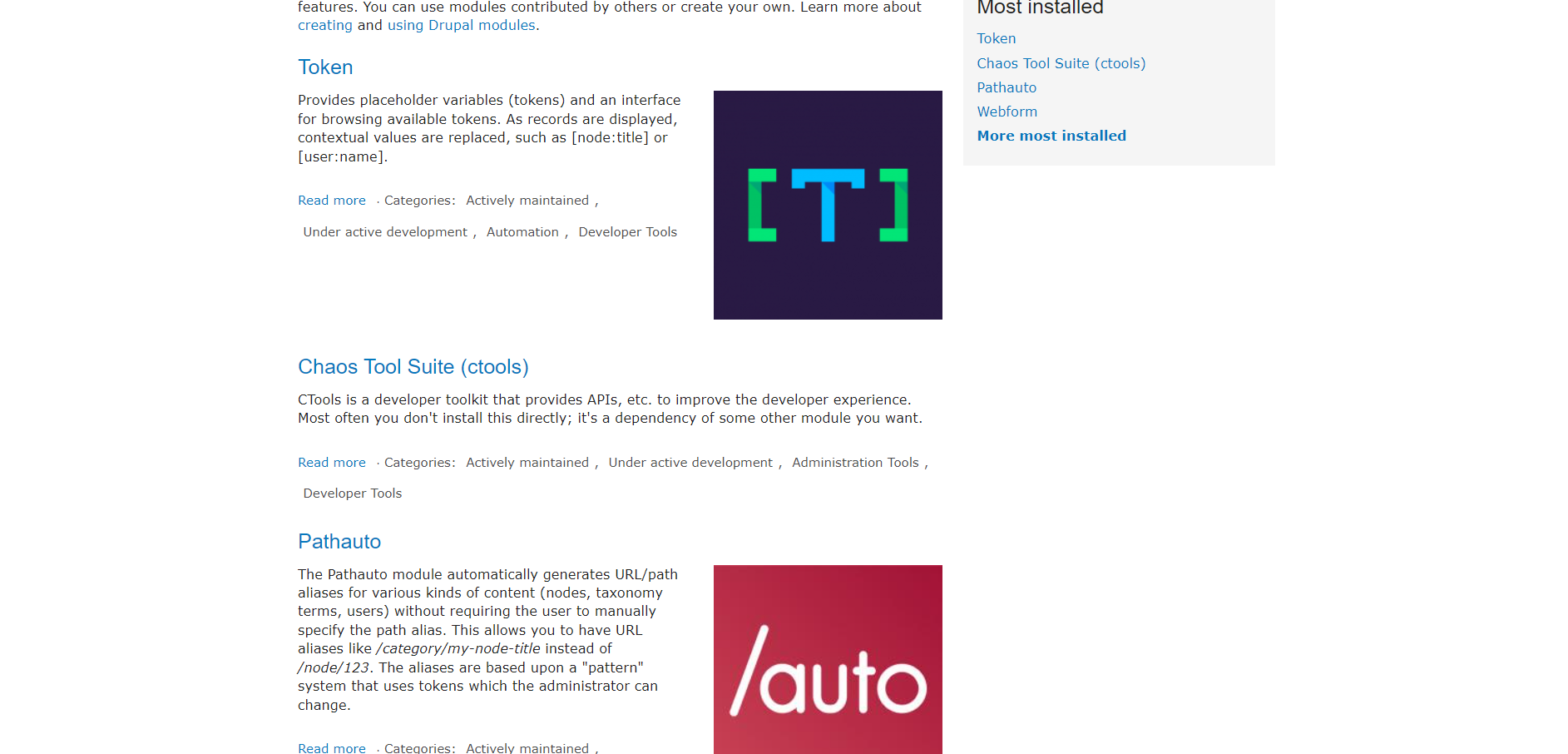
Marketing Features
Design FunctionalitiesRepresents how well each platform allows for creative design and customization of websites.Score Components:
- Template Variety (30%): Range and quality of design templates.
- Customization (30%): Flexibility and options for design alterations.
- User Interface (20%): Ease and intuitiveness of the design process.
- Responsiveness (10%): Adaptability to different devices and screen sizes.
- Innovation (10%): Unique design features and tools.
 8.0
8.0
 5.8
5.8
🏆
Overall Winner: Drupal
. Drupal stands out for its flexibility and extensibility, enabling developers to create complex websites with custom functionalities. Hostinger Website Builder is a user-friendly platform that allows users to build a website or online store without any coding knowledge or design experience.

|

|
|
|---|---|---|
|
SEO Tools |
Yes, with SEO modules such as Yoast SEO |
Yes |
|
Email Marketing |
Yes, but with third-party extensions, such as MailChimp |
Yes |
|
Blogging |
Yes |
Yes |
|
Social Media Integration |
Yes |
Simple social media links and sharing options |
|
Analytics and Reporting |
Yes, basic built-in features, and Google Analytics integrations through modules |
Basic analytics for website traffic and performance |
|
Ads and Promotions |
Yes, but with third-party extensions |
Limited direct ad tools but supports integrations for ad management |
Customer Support
Customer supportEvaluates the quality and availability of support options.Score Components:
- Response time (40%): Speed of support responses.
- Support quality (30%): Effectiveness and helpfulness of the support.
- Availability (20%): Range of support channels (phone, chat, email).
- Resource richness (10%): Quality of self-help and educational materials.
 6.7
6.7
 7.2
7.2
🏆 Winner: Hostinger Website Builder
. In the Drupal vs Hostinger Website Builder comparison, Hostinger Website Builder takes the lead with a customer support score of 7.2. Hostinger Website Builder offers 24/7 live chat support, a ticketing system with email responses within 24 hours, and phone support during specified hours, ensuring users have multiple avenues to seek help.
Drupal, with a customer support score of 6.7, provides a comprehensive range of support options, including community support through forums and documentation on Drupal.org, and professional 24/7 support services via providers like Drupal Connect. While Drupal’s community support is robust, the professional support services are often provided by third-party vendors, which may not be as seamless as Hostinger’s integrated support system.
Security
SecurityLooks at the platforms’ security measures and data protection.Score Components:
- Data protection (40%): Safeguards for user and customer data.
- SSL and encryption (30%): Implementation of secure connections.
- Compliance (20%): Adherence to industry security standards.
- Regular updates (10%): Frequency of security updates and patches.
 8.3
8.3
 8.2
8.2
🏆
Winner: Drupal
. Drupal’s open-source nature allows for a high degree of customization and advanced security configurations. It emphasizes website security through regular updates for both its core and contributed modules, alongside offering robust configuration options for enhanced protection. Drupal’s proactive security approach is bolstered by a dedicated security team that continuously works on identifying and fixing vulnerabilities.
Hostinger Website Builder also offers comprehensive security features, including regular updates, advanced firewalls, DDoS protection, and regular backups. However, it falls slightly short of Drupal’s security score, making Drupal the winner in this category.
AI Capabilities
AI capabilitiesMeasures the effectiveness of AI-driven features and tools.Score Components:
- Automation efficiency (40%): Impact of AI on streamlining processes.
- Personalization (30%): AI-driven customization for users or customers.
- AI-Assisted design (20%): Role of AI in website design and functionality.
- Data analysis (10%): Use of AI in interpreting user data and analytics.
 7.5
7.5
 6.1
6.1

|

|
|
|---|---|---|
|
AI Builder |
|
Hostinger’s AI Website Builder automates website creation |
|
Ecommerce Features |
AI-enhanced chatbots, content creation, and marketing automation |
AI Shop Generator, automated product descriptions, and smart stock management |
|
Content Generation |
AI Connect module for content generation and SEO optimization |
AI Writer tool for quick and easy content creation |
|
Additional AI Features |
AI-based search enhancements, content personalization, and automated content moderation |
AI Image Generator, AI Logo Maker, AI Heatmap, and SEO Check tool |
🏆 Winner: Drupal
. Despite not having a built-in AI builder, Drupal’s AI capabilities, particularly in enhancing ecommerce and content creation, are more comprehensive and versatile. Drupal’s AI integrations offer a range of advanced features, including AI-based search enhancements, content personalization, and automated content moderation.
Hostinger Website Builder, with a score of 6.1, utilizes AI to automate aspects of website creation. While it provides a quick and easy way to build a website, there are limitations in terms of customization, uniqueness, and potential technical adjustments needed for accuracy.
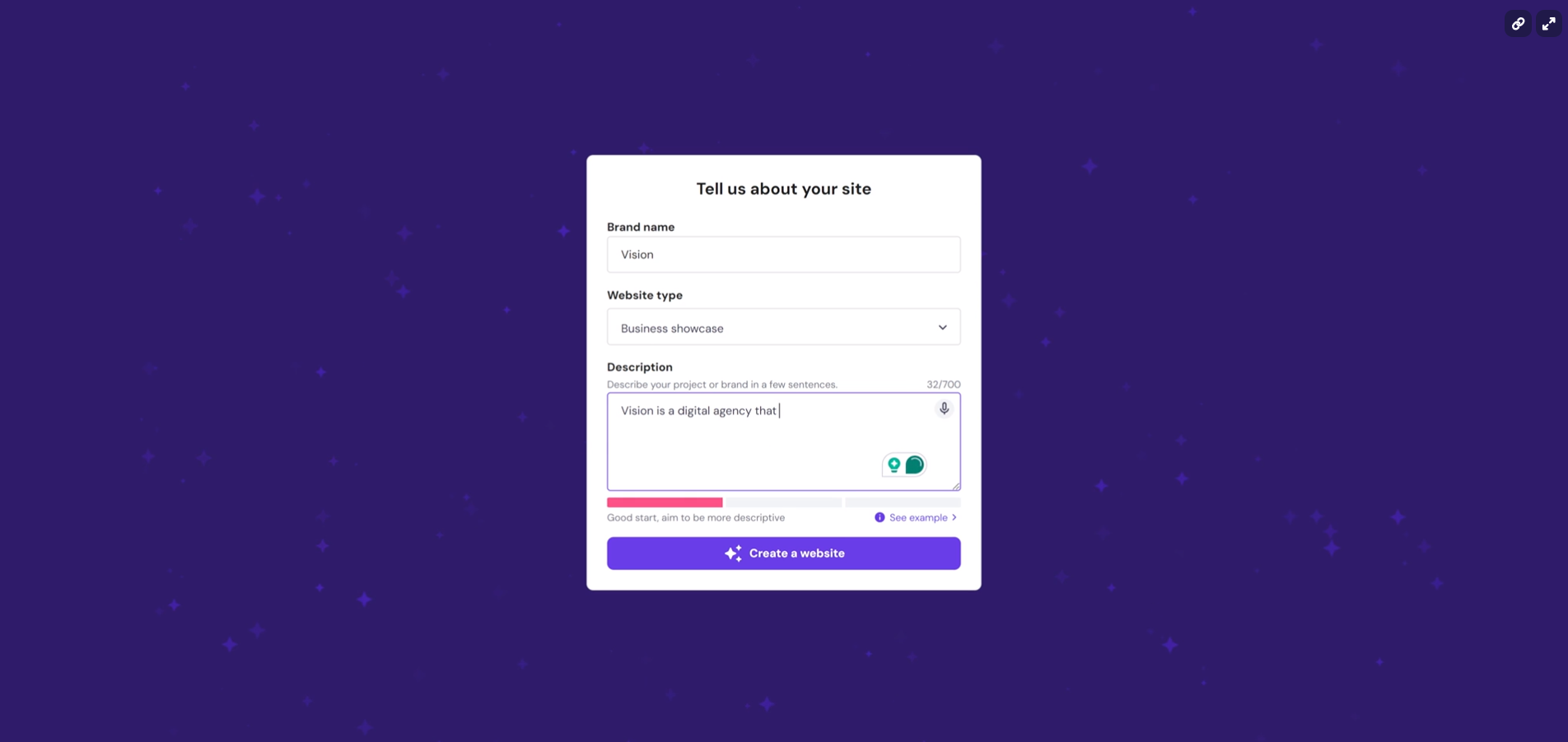
User Management
User ManagementAssesses the platforms’ capabilities in managing user roles, permissions, and accessibility.Score Components:
- Role Customization (40%): Flexibility in creating and defining user roles and
permissions. - Ease of Management (30%): User interface and tools for managing users.
- Access Control (20%): Effectiveness of access control measures for different user
levels. - Scalability (10%): Ability to manage a growing number of users efficiently.
 9.1
9.1
 6.3
6.3
🏆 Winner: Drupal
. Drupal’s flexible permission and role system allows for an unlimited number of users to manage and edit a website, only constrained by server capacity and practical management considerations. Administrators can create various roles, such as “Editor” or “Administrator”, each with customized permissions. There’s no inherent limit in Drupal on the number of users with administrative or editing capabilities, enabling extensive collaboration and content management possibilities.
On the other hand, the number of users who can edit a Hostinger website depends on the hosting plan and the Website Builder edition chosen. For shared hosting, the Free plan allows only 1 user, Starter allows 2, Premium allows 5, and Business offers unlimited collaborators. In Cloud Hosting, Startup allows 2, Professional allows 5, and Enterprise offers unlimited collaborators. The Website Builder Pro edition, available on all plans, allows up to 10 collaborators.
Drupal User Roles and Access Levels:
| Role | Description | Access Highlights |
|---|---|---|
| Editor | Users responsible for content creation, editing, and publishing. | Can create, edit, delete, and publish content; can also manage comments. |
| Moderator | Users focused on site moderation, including comment and user management. | Can approve or delete comments, block users, and manage reported content. |
| Administrator | Users with full access to all administrative features of the site. | Can change site configuration, manage all content, users, permissions, and install modules/themes. |
Additional Features

|

|
|
|---|---|---|
|
SSL Certificate |
|
|
|
Custom Domain |
|
|
|
Free Custom Domain Included |
|
|
|
International Domains |
|
|
|
Mobile Responsive |
|
|
|
Page Speed |
|
|
|
Website Builder Mobile App |
|
|
|
Convert a Website To An App |
|
|
|
Website Analytics |
|
|
|
Multilingual Sites |
|
|
|
Multiple Users |
|
|
Drupal vs Hostinger Website Builder: User Feedback
Users appreciate Drupal for its ease of use, security, and flexibility as an open-source CMS, highlighting its ability to scale and support a variety of websites and applications with modern technology tools. The community and documentation are frequently mentioned positives, providing ample support and resources. However, criticisms include a relative lack of plugins and themes compared to competitors like WordPress, the learning curve for customization without coding, and some challenges with installation and updates. The platform is praised for its robust content management capabilities, enabling users to manage content and user access efficiently. Overall, feedback underscores Drupal’s strength in creating secure, customizable, and scalable web solutions, despite some desires for more intuitive UI and easier setup.
Hostinger Website Builder is favored for its ease of use, affordability, and strong customer support, making it an attractive option for users, especially those new to website building. However, there are areas for improvement, particularly in offering more diverse templates, enhancing ecommerce features, and streamlining customer support responsiveness. These insights reflect a balance of satisfaction with areas that could benefit from further development.
The making of this blog
We followed a clear, step-by-step process to write and research this article.
Drupal vs Hostinger Website Builder: FAQ
Which platform is better for beginners, Drupal or Hostinger Website Builder?
Can I use both Drupal and Hostinger Website Builder for ecommerce?
How do Drupal and Hostinger Website Builder compare in terms of customization and design flexibility?
What are the major differences in pricing between Drupal and Hostinger Website Builder?
Which platform offers better support for SEO and marketing?










